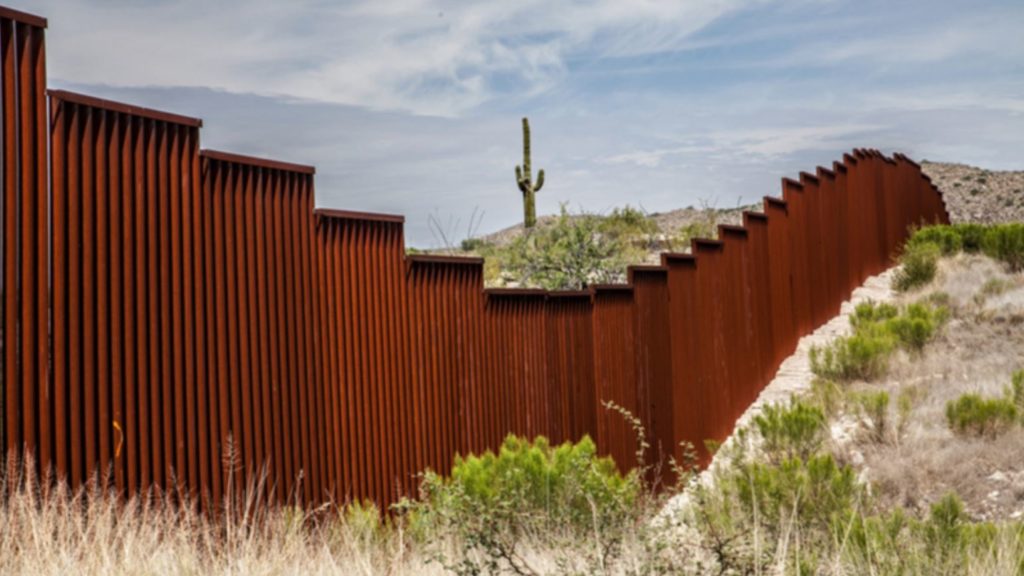 Op-Ed by Don Lim
Op-Ed by Don Lim
The US president recently claimed that building a border wall, costing as little as $15 billion, would pay for itself. The savings, he claimed, would come from limiting the number of narcotics and illicit drugs coming from the south of the border. Yet, such claims ignore basic economics and the history of alcohol prohibition.
It is uncertain the wall will be effective in stemming drug trafficking, and even if it is, more onerous consequences will occur. Whatever the reason for those who use illicit drugs – be it recreational, relief from depression and other mental health aspects, or experimentation – drug use has remained relatively steady over the past decade.
Restrictions in drug supply paired with a steady demand will only create a surge in prices, incentivizing drug lords to provide more drugs. In order to collect greater profits, similar to the era of alcohol prohibition, where spirits and liquors rose in alcoholic concentration, more potent versions of cocaine, heroin, and perhaps new synthetic drugs will arrive on the market.
More border restrictions make transportation more difficult and costlier. In order for suppliers to receive the same revenue as before, they create highly condensed versions of the drug. Crack cocaine, the most potent form of cocaine, came into the market due to harsher restrictions on regular cocaine from the initial policies from the war on drugs. More recently, a 2016 European report found 101 new street drugs in 2014 alone.
This will, unfortunately, make it easier for users to overdose. Concurrently, smaller drug dealers who are unable to circumvent the wall or other barriers will drop out of the market, leaving the wealthier, the more connected, and most likely, the more violent drug dealers to consolidate their market position.
Indeed, it is well documented, the laws of alcohol prohibition incentivized all these outcomes and created the American era of gangsters: the likes of Al Capone and Machine Gun Kelly. Because the products they were selling are outlawed, they could not settle property disputes and contractual conflicts through courts. Violence became the main channel for resolution.
Likewise, the increased violence near the US borders is the result of the current drug prohibition and will likely inflame with further prohibitory measures. With the potential increase in drug overdoses and violence, it is not obvious the wall will pay for itself in as little as a month—or, being generous, over multiple years.
Revenue and budgetary promises from the government are rarely if ever truly fulfilled. Nearly four decades of drug prohibition, taxpayer funding, and police and military intervention have had marginal effects on drug use while costing the American people around $41.3 billion annually. The wall will not change this trend and will only add to the ever-increasing spending.
Legalization and education of drug use are the only solutions which will reduce drug abuse. Though one study found legalization in Colorado led to higher crime rates, another study found decriminalization of marijuana—where evidence is strongest for states that border Mexico—led to reductions in crimes related to drug trafficking. Of course, more empirical research is necessary in order to sufficiently reach a robust conclusion, as marijuana legalization is a recent phenomenon.
Regardless of whether or not one believes drug use is moral or immoral, if the concern is drug use and the opioid epidemic in America—and we should very well be concerned with such trends—the solution is not helping the drug lords cement their positions and to increase their profits or to empower the government, we should rather speak with our friends and families who need help, to support them emotionally and to find the internal and personal causes of their drug use.
By ignoring their personal needs, we merely ignore and cover up the root cause of the problem. Like many government efforts, the outcomes from federal policies are usually the opposite of the well-meaning intentions. The wall will not pay itself and it will certainly not quash any relevant number of incoming drugs.
Sign up here to be notified of new articles from Don Lim and AIER.

Be the first to comment on "A Border Wall Will Worsen the Drug Problem"